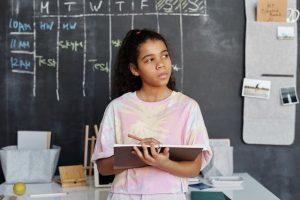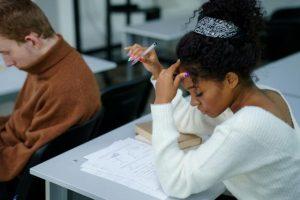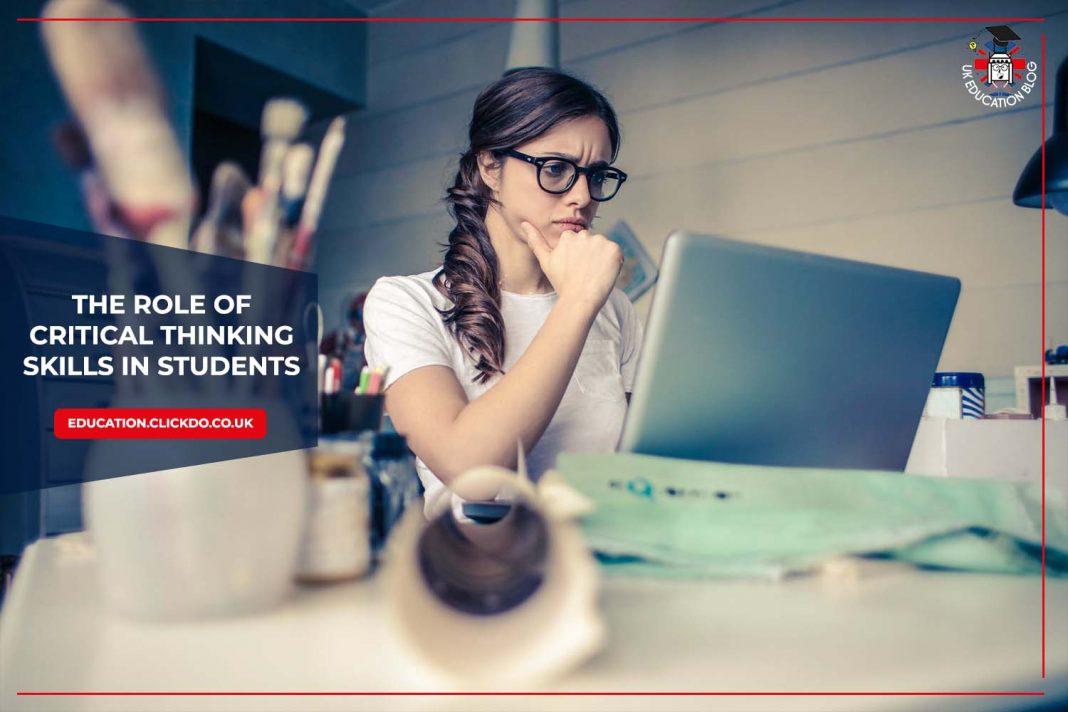Critical thinking skills have become more important in today’s rapidly evolving educational landscape.
These skills equip students to analyze, interpret, and evaluate information critically. Critical thought skills are essential for discerning truth and making informed decisions in a world of information and varying perspectives.
This skill set enhances academic performance and prepares students for real-world challenges, fostering a generation of innovative, problem-solving individuals. By emphasizing the importance of logical thought in education, we prepare learners for success beyond the classroom.
Effective ways to improve critical thinking include encouraging analytical and evaluative approaches to information, fostering problem-solving abilities, and nurturing the capacity to discern truth in a complex world, thus preparing students for both academic and real-world success.
What is Critical Thinking?

If you want to know the definition what is critical thinking, then read further. Critical thinking is the process of objectively analyzing and evaluating an issue to form a judgment. It involves identifying biases, examining evidence, and considering alternative viewpoints.
This skill is crucial in educational settings, as it encourages students to think beyond rote memorization and understand the deeper significance of what they learn. Critical thinking is also fundamental to effective social communication. Social communication enables students to articulate their thoughts clearly, engage in meaningful discussions, and develop empathy by understanding different perspectives. In essence, logical thought is not just about what to think but how to think.
Critical thinking examples in education include analyzing historical events from multiple perspectives, evaluating scientific theories based on evidence, and assessing the credibility of various media sources, all of which demonstrate the practical application of objective analysis and evaluative skills in forming informed judgments. A study guide focusing on logical thought should include exercises for analyzing historical events from multiple perspectives, evaluating scientific theories based on evidence, and assessing the credibility of media sources to enhance researchers’ objective analysis and evaluative skills.
The Role of Critical Thinking in Student Development

Critical thinking plays a pivotal role in student development. It enhances problem-solving skills by enabling students to approach challenges methodically and logically. Critical thinkers can dissect complex problems, identify their root causes, and devise effective solutions. Moreover, these skills are indispensable in decision-making. By evaluating information critically, students learn to make informed, rational decisions rather than relying on impulsive judgments. Critical thought also fosters creativity and innovation as students learn to question norms and think outside the box.
These competencies are invaluable in personal, academic, and professional spheres, making crucial thinking a cornerstone of holistic student development. Study materials designed to foster logical thought should allow students to methodically approach and solve complex problems, enhancing their problem-solving skills. Additionally, these materials should encourage students to critically evaluate information, aiding in developing informed decision-making and creative thinking abilities.
Strategies to Enhance Critical Thinking in Students

To enhance logical thought in students, educators can employ various strategies and methods.
One effective approach is encouraging inquiry-based learning, where students explore questions and problems rather than memorize answers. Implementing open-ended questions in classroom discussions prompts students to think critically and express their reasoning.
Another method is to incorporate problem-solving activities that challenge students to apply their knowledge in practical scenarios. Additionally, teaching students to analyze and critique different sources of information, including media and textbooks, develops their ability to discern biases and form independent opinions.
Collaborative learning is also beneficial, as it exposes students to diverse perspectives and enhances their analytical skills through group discussions.
Understanding how to improve critical thinking in students involves adopting a multi-faceted approach, including inquiry-based learning, the use of open-ended questions, problem-solving activities, critical analysis of various information sources, and collaborative learning to enhance diverse perspectives and analytical and soft skills.
Incorporating Critical Thinking in the Curriculum

Incorporating critical thinking exercises into the curriculum is essential for fostering these skills in students. Educators can integrate critical thought into various subjects by using case studies, real-world problem-solving tasks, and project-based learning. These approaches encourage students to apply theoretical knowledge to practical situations, enhancing their analytical and evaluative skills.
In literature classes, for example, students can analyze characters’ motivations and plot developments, while science classes can focus on hypothesis testing and data interpretation. Additionally, teachers can use debates and role-playing exercises to stimulate crucial thinking, allowing students to explore different viewpoints and develop persuasive arguments. By embedding logical thought into teaching methods, educators can create an engaging learning environment that nurtures these vital skills.
Enhancing students’ thinking through critical thought exercises in the curriculum allows them to apply theoretical knowledge in practical situations, thereby improving their analytical and evaluative skills across various subjects. Lecture notes focused on critical thinking should include frameworks and examples that guide students in applying theoretical knowledge to real-world scenarios, thus enhancing their analytical and evaluative skills. These notes can serve as valuable references for students to develop a deeper understanding of how to think critically across different subjects.
Case Studies and Examples of Critical Thinking in Action

Presenting case studies and real-life examples of critical thinking in action can effectively illustrate its importance.
For instance, a case study in a history class could involve analyzing the causes and consequences of a significant event, encouraging students to consider various factors and perspectives. Examining how scientists solved a particular problem or made a discovery in science classes can demonstrate the application of logical thought in research. Additionally, discussing real-life scenarios where critical thought has led to successful business, healthcare, or technology outcomes can inspire students and show the practical value of these career skills.
These examples make learning more relatable and highlight the real-world significance of critical thinking. Study notes on logical thought should encompass case studies and real-life examples, illustrating its application in various fields like history, science, and business, thereby demonstrating the practical value and real-world significance of these skills to students.
Challenges in Teaching Critical Thinking

Teaching critical thinking presents several challenges. One major obstacle is the prevalence of rote learning and standardized testing, which often prioritize memorization over deeper understanding. To overcome this, educators need to create a classroom environment that encourages questioning and open dialogue. Another challenge is students’ varying readiness levels and ability to engage in critical thinking.
Differentiated instruction and scaffolding strategies that cater to various learning needs can address this. Additionally, educators need to be proficient in logical thought to teach it effectively, necessitating ongoing professional development. Addressing these challenges requires a concerted effort from educators, administrators, and policymakers to prioritize and effectively implement critical thinking in educational curricula.
Addressing the challenges in teaching logical thought necessitates solutions such as fostering an environment of questioning and open dialogue, providing differentiated instruction tailored to individual learning needs, and ensuring that educators undergo continuous professional development to enhance their own critical thought skills.
Conclusion
In conclusion, developing critical thinking skills in students is imperative for their academic and personal growth. These skills equip students to navigate an increasingly complex world, enhancing their problem-solving, decision-making, and communication abilities. While there are challenges in teaching and integrating critical thinking into education, the benefits are undeniable. Educators must continue to explore innovative strategies to cultivate these skills, ensuring that students are well-prepared for the future. Ultimately, prioritizing logical thought in education is an investment in the development of informed, capable, and adaptable individuals.
Author Profile

- Editor in Chief
- Blogger and Educator by Passion | Senior Online Media & PR Strategist at ClickDo Ltd. | Contributor to many Education, Business & Lifestyle Blogs in the United Kingdom & Germany | Summer Course Student at the London School of Journalism and Course Instructor at the SeekaHost University.











